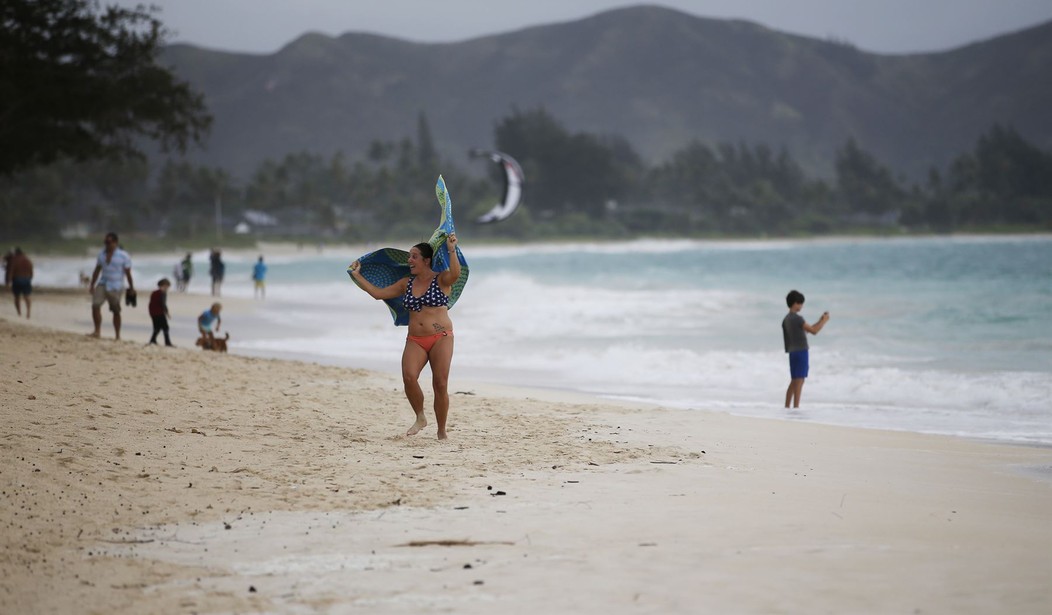After yesterday’s disappointing news from the Supreme Court, gun owners and Second Amendment activists could use a little legal pick-me-up, and a federal judge in Hawaii has delivered just that in a ruling granting a temporary restraining order against many of Hawaii’s newly designated “sensitive places” where lawful concealed carry is banned.
U.S. District Judge Leslie E. Kobayashi used her opinion to poke a bit at the Supreme Court’s decision in Bruen, complaining at one point that the Court’s “history, text, and tradition” test can be “confounding”, but ultimately delivered a ruling that’s very favorable to the plaintiffs.
Plaintiffs have established a substantial likelihood of success on the merits of their: as-applied challenge to § 134-A(a)(1); facial and as-applied challenges to §§ 134- A(a)(4), (a)(12), and the portions of § 134-A(a)(9) prohibiting the carrying of firearms in beaches, parks, and their adjacent parking areas; and as-applied challenge to § 134-E on the ground that it violates the Second Amendment, applicable to the State through the Fourteenth Amendment. For these challenges, Plaintiffs have also sufficiently established that they will face immediate irreparable harm and that the public interest and the balancing of the equities weigh in favor of issuing a TRO. Accordingly, the TRO Motion is granted in part, to the extent that these challenged provisions (or challenged portions of the respective provisions) are enjoined.
Judge Kobayashi not only granted the restraining order against the prohibitions on carrying in beaches, parks, and adjacent parking areas, she put the state’s ban on carrying in restaurants that serve alcohol, parking lots shared by government entities and private businesses, and (of huge significance) the default ban on carrying on private property. Hawaii is trying to flip the status quo found in most states, which require property owners who want to ban firearms from their property to post signage to that effect, but Judge Kobayashi found the state’s historical evidence decidedly lacking in substance. Hawaii had pointed to eight 18th and 19th-century laws regulating firearms possession on private property; none of which “support the State’s contention that this Nation has a historical tradition of prohibiting the carrying of firearms on private property held open to the public,” according to the judge.
Those laws concern prohibiting carrying firearms on enclosed premises or plantations. The definitions of the relevant words in those laws are helpful in establishing that the laws concerned private property like residential lands, which were not generally held open to the public. The word “enclose” means “[t]o surround or encompass; to fence or hem in all sides.” Enclose, BLACK’S LAW DICTIONARY (11th ed. 2019). In relation to land, “enclosed land” means “[l]and that is actually enclosed and surrounded with fences.” Land, BLACK’S LAW DICTIONARY (11th ed. 2019). Moreover, the word “plantation” means “[a]n estate or large farm . . . .” Plantation, OXFORD ENGLISH DICTIONARY (3d ed. Revised June 2006). Because those eight laws prohibited carrying firearms on private property that consisted of fenced off lands or estates, the laws did not likely concern private property that was generally held open to the public. Accordingly, the conduct regulated in those laws are not covered by the Second Amendment’s plain text.
The only law out of those eight laws that does not use the words “enclosed,” “inclosed,” or “plantation,” is the 1771 New Jersey law which prohibited persons from carrying firearms on “any [l]ands” not their own. See McLean Decl., Exh. 42. Even assuming this meant any private property regardless of whether it was held open to the public, one New Jersey law does not show that such a law was “representative” of the laws applicable throughout the Nation. See Bruen, 142 S. Ct. at 2133. The State’s reliance on these laws is therefore unpersuasive. The State has not established that the portion of § 134-E that prohibits carrying firearms on private property held open to the public is consistent with this Nation’s historical tradition of gun regulation.
We’ll be talking a little more about Kobayashi’s ruling and its implications beyond Hawaii on this afternoon’s Bearing Arms’ Cam & Co with California Rifle & Pistol Association head Chuck Michel, but the chief takeaway is that by applying the Bruen test instead of trying to do an end run around it, the judge has put Hawaii on notice that these prohibitions aren’t likely to stand. Kobayashi’s order gives the state an opportunity to provide more relevant historical analogues to their current regulations, but as Michel told me, that evidence simply isn’t there in the historical record, and he believes the judge’s ruling is on solid legal ground.









Join the conversation as a VIP Member